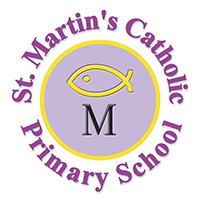We are Communicators!
Language and Communication Curriculum Intent:
- Early identification and intervention with communication and language difficulties or deficits.
- To encourage children to communicate confidently by providing them with purposeful language interactions and experiences.
- To create an environment which promotes active listening and learning and productive talking: a caring environment where others listen, show an interest and value what they say.
- To encourage children to communicate in a style appropriate to the audience and purpose of the task.
- To provide real situations, affording the children the opportunity to develop a range of strategies and skills which will enable them to function in society as confident well-spoken adults.
- To create opportunities for speaking and listening across all areas of the curriculum, as we believe speaking and listening is a vital part of the whole learning process and cannot be developed in isolation.
- To ensure a wide variety of tier 2 and subject-specific tier 3 words are used across the curriculum.
Communication and Language extract from EYFS Framework:
“The development of children’s spoken language underpins all seven areas of learning and development. Children’s back-and-forth interactions from an early age form the foundations for language and cognitive development. The number and quality of the conversations they have with adults and peers throughout the day in a language-rich environment is crucial. By commenting on what children are interested in or doing, and echoing back what they say with new vocabulary added, practitioners will build children's language effectively. Reading frequently to children, and engaging them actively in stories, non-fiction, rhymes and poems, and then providing them with extensive opportunities to use and embed new words in a range of contexts, will give children the opportunity to thrive. Through conversation, story-telling and role play, where children share their ideas with support and modelling from their teacher, and sensitive questioning that invites them to elaborate, children become comfortable using a rich range of vocabulary and language structures.”
In the Primary National Curriculum (2014) language is mentioned throughout, but is only overtly mentioned once with a list of twelve statutory statements relating to Spoken Language in the English curriculum:
Pupils should be taught to:
- listen and respond appropriately to adults and their peers
- ask relevant questions to extend their understanding and knowledge
- use relevant strategies to build their vocabulary
- articulate and justify answers, arguments and opinions
- give well-structured descriptions, explanations and narratives for different purposes, including for expressing feelings
- maintain attention and participate actively in collaborative conversations, staying on topic and initiating and responding to comments
- use spoken language to develop understanding through speculating, hypothesising, imagining and exploring ideas
- speak audibly and fluently with an increasing command of Standard English
- participate in discussions, presentations, performances, role play, improvisations and debates
- gain, maintain and monitor the interest of the listener(s)
- consider and evaluate different viewpoints, attending to and building on the contributions of others
- select and use appropriate registers for effective communication.
These statements apply to all year groups from year 1 to year 6 and the content taught at a level appropriate to the age of the pupils.
The Language and Communication subject lead is Mrs Carter

